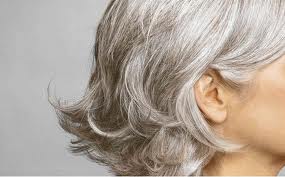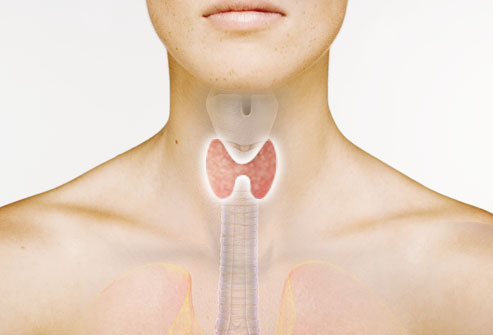The Thyroid + Premature Gray Connection
There are all kinds of "rationales" to why you may be turning gray prematurely. Our biochemistry has lasting effects on our hair and skin, and the link to your thyroid may be one piece of the puzzle. Contact us for a hair analysis today! Kasia Organic Salon is your #1 resource for Health and Beauty.
What’s 'Premature'
Hair goes gray when color-producing cells stop producing pigment. Naturally occurring hydrogen peroxide can also build up in the hair, bleaching the color.
Is your gray hair a medical problem?
Going gray, by itself, does not mean you have a medical problem, except in rare cases. Contrary to popular belief, stress has not been shown to cause gray hair. Scientists don’t know exactly why some people go gray early, but genes play a large role.
A vitamin B-12 deficiency or problems with your pituitary or thyroid gland can cause premature graying that’s reversible if the problem is corrected.
The Thyroid + Premature Gray Connection
Empirical evidence has already led to the belief that hair loss is the result of decreased metabolism in the scale follicles of people with low levels of thyroid hormone, resulting in early release of the hair shaft and root. Hair that is brittle, has split ends and breaks has been observed to correlate with low thyroid levels. Many physicians and dermatologists diagnose low thyroid based solely on early graying of the hair and the loss of hairs from the outer ends of the eyebrows.
Thyroid problems can develop at any age and usually appear so slowly that they go unnoticed. At least 27 million Americans are estimated to have an undiagnosed thyroid problem, and most of them are females.

The thyroid is the master gland of metabolism. When it is not functioning properly it can affect every aspect of your health, particularly weight, mental outlook, body temperature and energy levels. The thickness and quality of your skin is also dependent on thyroid function. Under active thyroid, called hypothyroidism, is the most common thyroid condition, affecting as many as one in five women at some point in their lives.
Untreated hypothyroidism dramatically increases your risk of serious health concerns and degenerative diseases. Another symptom of hypothyroidism is weak heart beat. When your heart beat is not as strong as it should be, the amount of oxygen getting to your cells is reduced. This is the kind of environment in which cancer grows.
Along with the loss of hair and its color, symptoms of hypothyroidism include difficulty losing weight, weight changes, and muscle and joint pain. Severe or long-term constipation is frequently associated with hypothyroidism, while diarrhea or irritable bowel syndrome is associated with hyperthyroidism. Depression and anxiety, including sudden panic attacks, can be symptoms of thyroid problems. Feeling overly warm or cold when everybody else in the room is comfortable also suggests thyroid malfunction, as does excessive fatigue. If you are tired when you get up after a good night's sleep, or need a nap or two to get through the day, you probably have a thyroid problem.
Think about how the wisdom of the body operates. When your thyroid is not functioning up to par, the body will attempt to conserve energy by redirecting it from nonessential areas, and directing efforts at repair and regeneration to those functions considered more essential.
This is why the beauty of your hair and skin are among the first to go then your thyroid starts to give out. And when the thyroid function is low, intestinal absorption and utilization of nutrients is compromised. There are then not enough raw building materials available to keep the nonessential parts of you at their best.
Read more about how to boost your thyroid and metabolism from Dr. Mark Hyman HERE!
Contact the Kasia team today for your hair analysis, non-toxic and natural hair color and home regime products, as well as the #1 Functional Medicine referral's in Minnesota.
